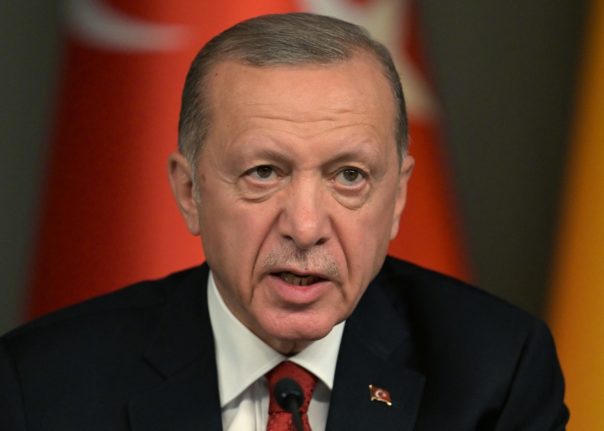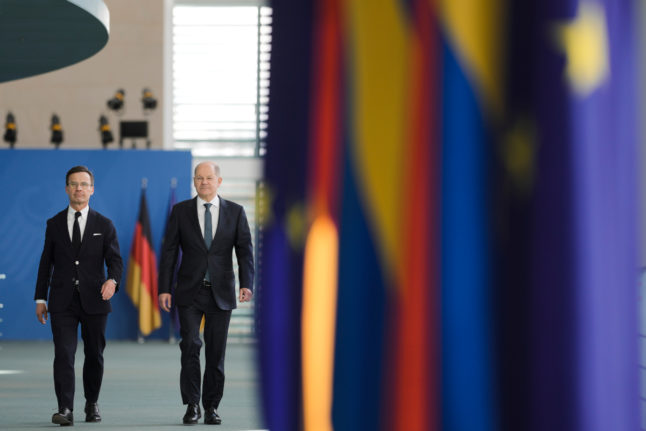In a statement on X, Turkey’s Directorate of Communications said that the protocol would now be “referred to the Grand National Assembly”.
The Protocol on Sweden's NATO Accession was signed by President Recep Tayyip Erdoğan on October 23, 2023 and referred to the Grand National Assembly of Türkiye.
— Republic of Türkiye Directorate of Communications (@Communications) October 23, 2023
The protocol will now go to the Turkish parliament’s foreign policy and defence committees for assessment, and then back to the foreign policy committee for a vote, after which it will be sent to be voted on in parliament. It then returns to Erdogan for the final, formal approval.
Erdogan said at Nato’s summit in Vilnius in July that Sweden’s Nato membership would be put before his parliament in October, meaning he had only a week to go before his own deadline.
Turkey and Hungary have delayed Sweden’s accession to the alliance for more than a year, with Erdogan and Hungary’s President Viktor Orban the only leaders from among its 31 member states not to have put the accession before their parliaments.
In a statement on X, Sweden’s prime minister, Ulf Kristersson celebrated the “happy news”.
“Now all that remains is for the parliament to handle the issue. We are looking forward to being a member of Nato.”
Tobias Billström, Sweden’s foreign minister, also said Sweden was “looking forward” to joining the alliance in his own post on X.
Sweden’s defence minister, Pål Jonson, told TT however that he “did not want to speculate” on how long it would take before Sweden’s application was finally approved.
Erdogan has justified the delay by claiming that Sweden has not done enough to crack down on the PKK terror group and the Gülen movement he blames for the country’s 2016 coup attempt, or to meet the terms of the tripartite agreement signed between Sweden, Finland and Turkey at Nato’s summit in Madrid in 2022.
He has also condemned Sweden for allowing protests at which copies of the Quran, the holy book of Islam, have been burned.
At he end of last month, however, he unexpectedly linked Turkish approval for Sweden’s Nato membership to permission from the US government for Turkey to buy F-16 fighter jets.
“If they keep their promises, our parliament will keep its own promise as well. The Turkish parliament will have the final say on Sweden’s Nato membership,” Erdogan told the Reuters news agency a week after his foreign minister, Hakan Fidan, held talks in New York with his US counterpart Antony Blinken.



 Please whitelist us to continue reading.
Please whitelist us to continue reading.
Member comments